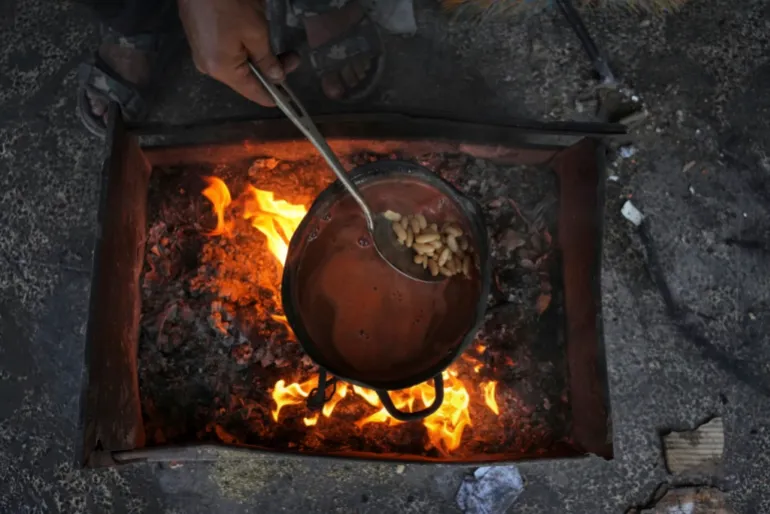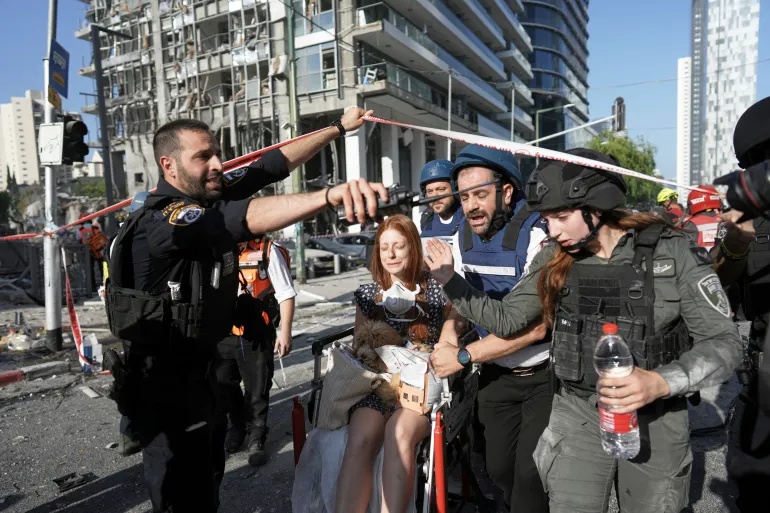Gaza: In the heart of Gaza, the simple act of cooking has become a dangerous and toxic ritual. With no access to cooking gas since the early days of the war and blockades choking every supply line, families have been forced to abandon their stoves and instead burn plastic, rubber, and waste to make a fire.
Once marked by the familiar click of a gas burner, mornings are now filled with the acrid smoke of makeshift fires.
The last reserves of cooking gas were exhausted during Ramadan, according to Gaza-based writer Hassan Abo Qamar. His family, like countless others, had no choice but to gather firewood, if available. For those without trees or fuel sources, household garbage became the only option. “From today, we cannot even make a cup of tea for suhoor,” his mother had said somberly, a statement that reflects the wider tragedy unfolding across Gaza.
This desperate shift to burning synthetic materials has poisoned the air and tainted the food. Toxic fumes cling to every meal, making the act of nourishment itself a health hazard. Plastic smoke seeps into rice, bread, and tea, leaving a taste of chemicals in every bite and further endangering the already fragile health of Gaza's population.
As the war drags on and access to essentials continues to be denied, the daily rituals that define normal life—like sharing a hot meal—are being stripped away. The World Health Organization and aid agencies have repeatedly warned of the rising risks of respiratory illness and long-term health impacts from the widespread use of unsafe cooking materials. But for many Gazans, survival outweighs the risk. When there's no fuel and no food aid, a toxic fire is the only way to feed a family.








